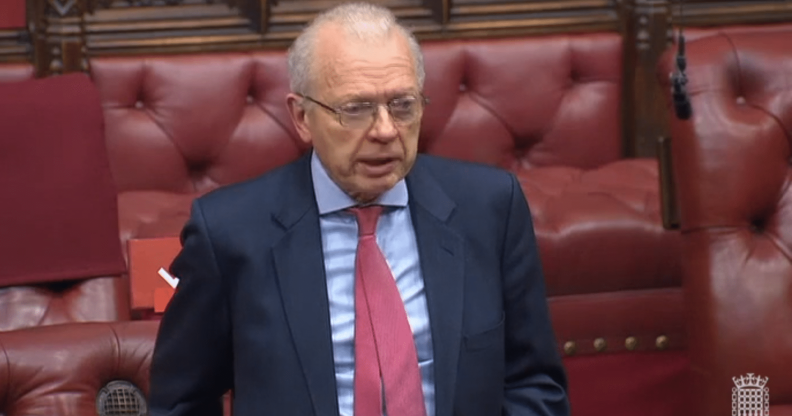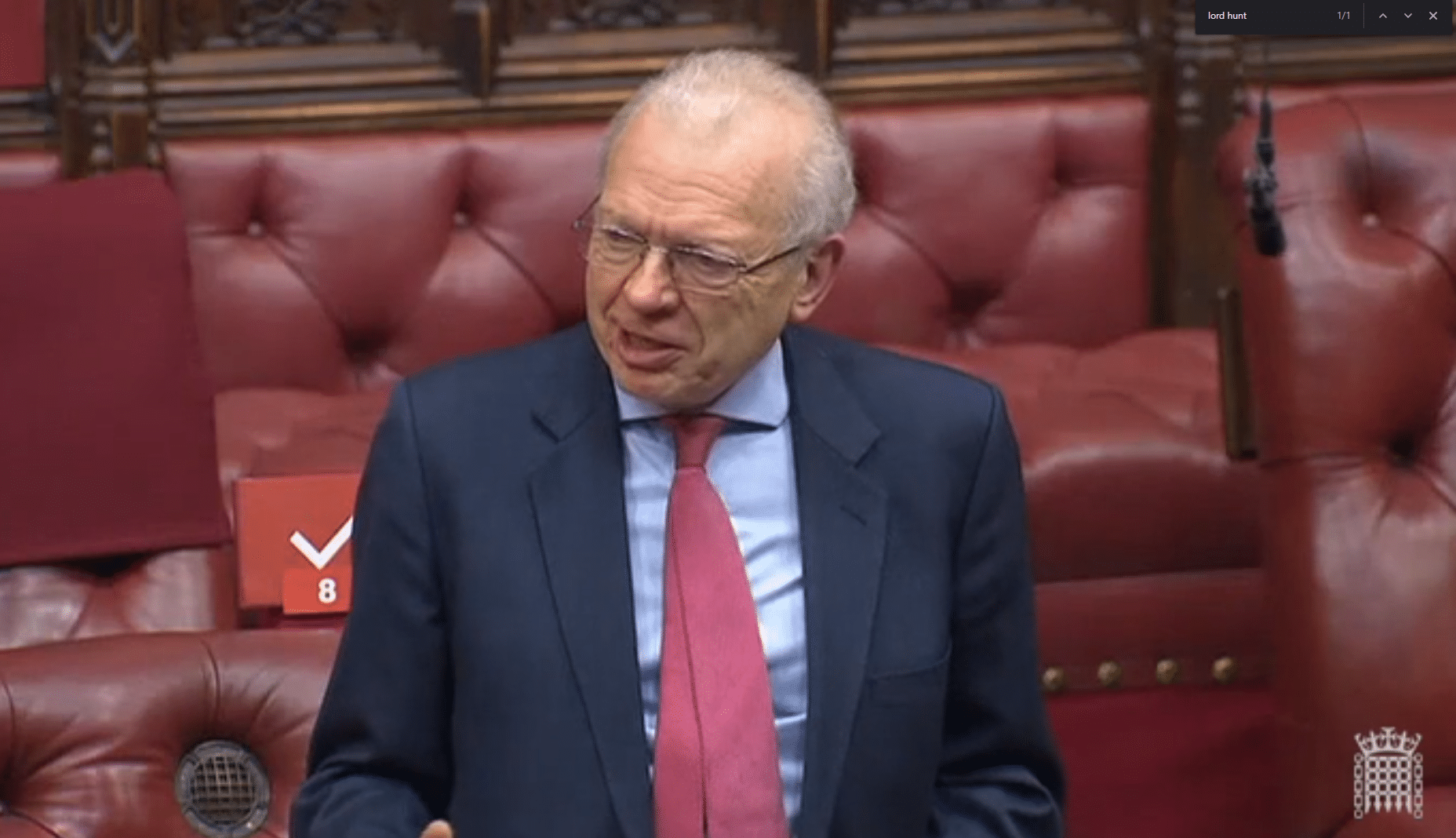Unelected Labour peer rages against trans-inclusive maternity bill because it says ‘parents’ not ‘mothers’

Labour peer Lord Hunt of Kings Heath lashed out at the wording of a bill which would allow ministers to take paid maternity leave (Parliament)
A Labour politician who has never held elected office used the House of Lords to rage against trans-inclusive language being used in a maternity bill.
Lord Hunt of Kings Heath, who was appointed to the unelected chamber in 1997 and served as a minister under Tony Blair and Gordon Brown, lashed out at the wording of a bill which would allow ministers to take paid maternity leave.
Hunt picked on language that applies parts of the law when “the person is pregnant” and after “the person has given birth,” in line with a long-standing and previously-uncontroversial convention to use gender-neutral language in legislation.
A series of amendments backed by Hunt and other peers sought to change the language in the bill to refer only to “women”.
The Labour peer complained: “We heard the rather inelegant terms ‘person who is pregnant’ and ‘person who has given birth to a child’, which do not seem to add to what we understand as good English.”
Labour peer reheats anti-trans talking points in House of Lords
Hunt proceeded to make a number of incorrect assertions about trans issues, parroting the debunked but widely-promoted claim that a Brighton maternity trust had erased female-focussed terms in favour of those such as “chest feeders”.
He also incorrectly suggested that the Office for National Statistics had only decided to include transgender people in Census data collection – a matter agreed years in advance after extensive consultation– after “aggressive attacks on social media” and accusations of transphobia.
Hunt went on to laud Rosie Duffield, the Labour MP who has been accused of transphobia by a number of her own former staffers (a charge she has denied) but who Labour leader Keir Starmer has refused to suspend.
He complained: “What support has been given to her? Hardly anything, except from a few brave, dedicated people. It is shameful that we have allowed this situation to arise. That is why the Bill and its drafting are so important.”

Lord Hunt of Kings Heath lashed out at the wording of a bill which would allow ministers to take paid maternity leave (Parliament)
The peer added: “Please will the government defend women who speak up for the protection of women’s rights based on sex?
“I come again to the outrageous abuse that some of my parliamentary colleagues have received by stating in perfectly reasonable terms that they are not transphobic, just reasonable people seeking to do their job, yet they do not get support from the people who know that what is happening to them is wrong.”
Lord Hunt says he definitely isn’t transphobic because he supported gay adoption
In a classic of the form, Hunt stressed that he could not possibly be transphobic because “I fought the iniquities of Section 28 and, as a minister, I took the legislation through this House to allow for gay adoption”.
A series of amendments to strip gender-neutral language from the bill were backed by former Labour MP Baroness Hoey, notorious same-sex marriage opponent Baroness Nicholson and Labour peer Lord Winston – as well as Conservatives peers Lord Lucas, Lord Cormack and Baroness Noakes.
The group later opted to press an amendment that says: “This House regrets that the Bill is drafted in a way which does not respect the fact that only women can be pregnant.”
The amendment, which threatened to hold up the urgent measure put in place for attorney general Suella Braverman ahead of the birth of her first child, was ultimately withdrawn.
Responding on behalf of the government, Cabinet Office minister Lord True said: “Questions have been raised about whether this is the application of extreme gender ideology. It is not. The overriding drafting principle for all legislation is that we must create the legal conditions to deliver the policy intent.”
He explained that “changes introduced by the then Labour government [in 2007] and supported by successive governments of all parties have sought to avoid gender-specific pronouns and usages when drafting legislation.”
True added: “Although the drafting of this bill in the context of maternity has been criticised by many, I repeat that it was neither novel nor intended in any way to denigrate women.
“I and the government have heard today the concerns of both Houses on the ‘erasure of women’ from public discourse and legislation. It is not intended to do this. The overriding drafting principle is that we must meet the legal requirements to deliver policy intent.
“The use of ‘person’ in relation to pregnancy or childbirth matters in legislation is in line with current drafting convention and guidance.”

